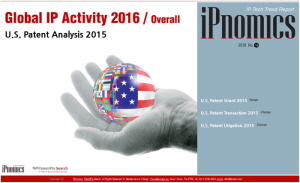Share the post "SK Telecom Receives a Permission to Temporarily Drive Its Self-Driving Cars on Actual Roads"
SK Telecom has become the first South Korean mobile network provider to obtain a permission to temporarily drive its self-driving cars and is going to start test-driving its cars on actual roads this month. Competitions between mobile network providers on self-driving cars are going to take place on full-scale as it is heard that KT will also receive a permission at the end of this month to temporarily drive its self-driving cars.
SK Telecom announced on the 19th that it received a permission from Ministry of Land, Infrastructure and Transport (MOLIT) to temporarily drive its self-driving cars. Before receiving this permission, SK Telecom satisfied safe drive requirements such as maximum speed limit, prevention of front collision, automatic detection of breakdown, and conversion to manual driving during emergencies during test-drives in order to obtain this permission. SK Telecom is going to test-drive its cars not only on Seoul National University Gwanak Campus’ test track but also on regular roads.
SK Telecom remodeled ‘Genesis G80’ that utilizes AI (Artificial Intelligence), SW (Software), radar and lidar for detecting surrounding cars and objects, camera, sensor, and GPS. It is also equipped with remote high-tech ADAS (Advanced Driver Assistant Systems) that detects dangers such as lane departure and collision with pedestrians.
SK Telecom is planning to send information from sensors and cameras’ blind spots to to a car through 3D ultra-accurate map (3D HD map) and V2X (Vehicle to Everything Communication) in order to increase car’s judgment in recognition and driving.
SK Telecom’s 3D HD map shows geographic feature around roads, signals, and traffic signs with high accuracy (less than 25cm). Self-driving car’s AI computer plays an important role in finding the safest and fastest route.
V2X, which is currently based on LTE, is applied with 5G network and reduces reaction speed to under 0.001 second. 5G V2X sends and receives traffic information between cars, control centers, and surrounding objects in real-time.
SK Telecom announced on the 19th that it has become the first South Korean mobile network provider to obtain a permission to temporarily drive self-driving cars. By doing so, SK Telecom’s self-driving cars will be test-driven on regular roads and test track (within Seoul National University) starting from this month. SK Telecom’s Automotive Technology Research Team and a research team led by Professor Lee Kyung-soo of Seoul National University are checking self-driving software at the front gate of Seoul National University Gwanak Campus’ Engineering Building.
SK Telecom is going to increase efficiency in self-driving function with Big Data. It is going to apply Big Data, which has been accumulated from T Map that is used by 10 million cars per month, to self-driving algorithms. By doing so, self-driving cars can understand real-time traffic volume and others and set up routes accurately and rapidly. This algorithm is based on a structure that increases self-driving car’s judgment on its own as it is driven more and more.
“We are going to develop self-driving technologies through research with variety of partners from automotive, electronic, and equipment industries.” said Director Park Jin-hyo of SK Telecom’s Network Technical Institute. “We are going to contribute in increasing stability of self-driving technologies and reducing cost from societies.”
KT is going to develop self-driving technologies with Seoul National University and others. It applied self-driving technologies to bus and requested a permission from MOLIT regarding temporary operation of its self-driving cars. This is the first time when a business requested a permission of temporary drive with self-driving bus.
KT is going to carry out test-drives on regular roads as soon as it receives a permission from MOLIT. KT’s self-driving bus is drawing attention as it is heard that it will be driven based on 5G test network. It is likely that demonstration services of 5G self-driving shuttle buses will be provided during 2018 Pyeongchang Winter Olympics.
LG Uplus is also increasing amount of its investments towards development of self-driving technologies and is going to develop related platforms and Volkswagen and Ssangyong Motors.
Staff Reporter An, Hocheon | [email protected]
Share the post "SK Telecom Receives a Permission to Temporarily Drive Its Self-Driving Cars on Actual Roads"


